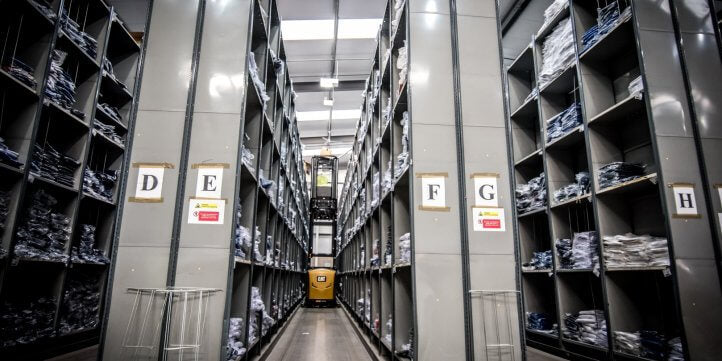Industry in Focus: Warehousing

With Britain’s withdrawal from the European Union still anticipated to occur on or before 31st October this year, there are significant changes happening across practically all industries in preparation for ‘Brexit’. Here, we’ll take a look at what’s been happening in the warehousing sector as a result of Brexit preparations, examining both the positive and negative changes that have arisen directly from the 2017 invocation of Article 50.
The Stockpiling Trend
With a fear of having to pay notable import fees and tariffs for goods sourced from the EU following a hard Brexit, it is no surprise that many UK-based organisations have made the decision to stockpile goods now during this period of free trade with the union. The Office of National Statistics confirms that imports from the EU have been unusually high this year, suggesting UK businesses are using stockpiling as a method of preparation.
Unfortunately, it appears that there have been many cases where stockpiling has backfired. Reports show that many businesses, particularly those operating within the manufacturing industry, have experienced a rapid decline in new orders. The combination of greater imports and reduced order figures is resulting in businesses having more stock than they can reasonably clear, leading to warehousing issues.
A lack of space is one of the biggest challenges facing the warehousing industry during the run up to Brexit. Earlier this year, it was reported that UK warehousing space was nearing capacity, with storage firms taking advantage of the increased demand and raising costs by as much as 25%. Three quarters are unable to take on new business.
The Good News?
Despite the new challenges which have been created as a result of political uncertainty in the UK, there is a silver lining that many are overlooking. The stockpiling and panic buying trends have resulted in unprecedented GDP growth, with a 0.5% increase during Quarter 1 2019 far exceeding the 0.4% European average for the period. While some are putting this down to a ‘worry boom’, others are claiming that the effects will be longer lasting, and The Institute of Chartered Accountants in England and Wales estimates that employment levels will soar and salaries will grow by 2.8% this year, signalling good news for warehouse workers and reducing the chance of closures.
The Future of Warehousing
The truth is that, with no definite or confirmed plans for a either a hard or soft Brexit, it remains impossible to say with any certainty exactly what the future of warehousing will hold. What we do know is that the warehousing industry has been presented with new challenges during this period, and will need to adapt to succeed in a post-Brexit world.
-
Posted in
Industry in Focus






